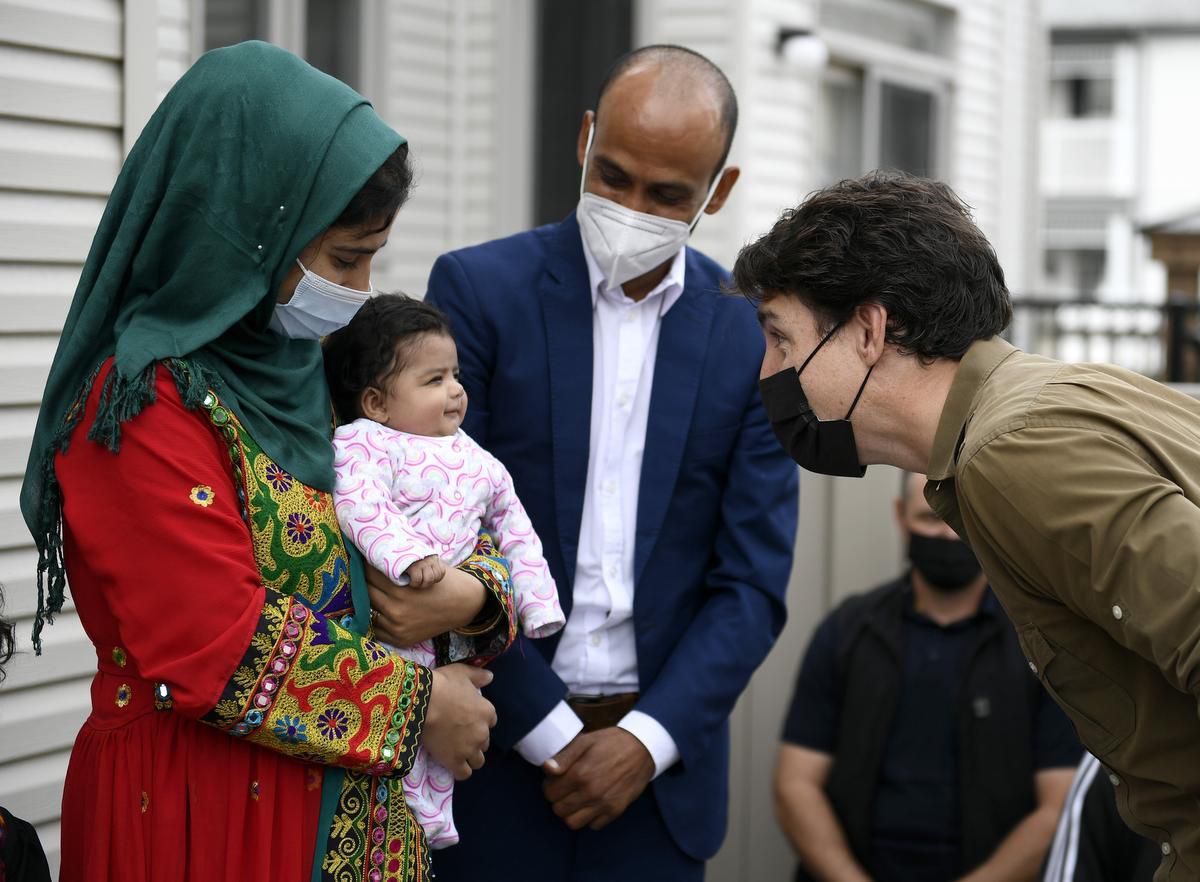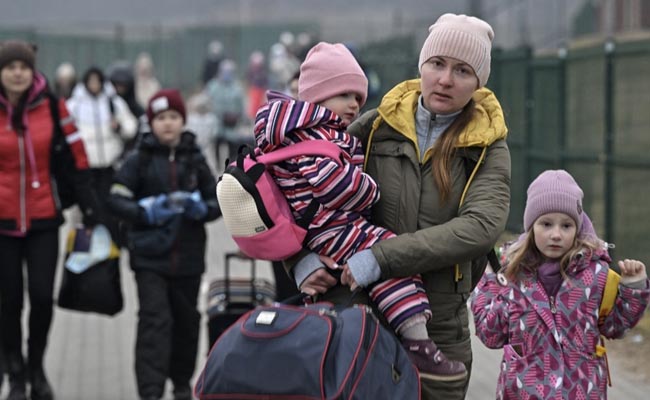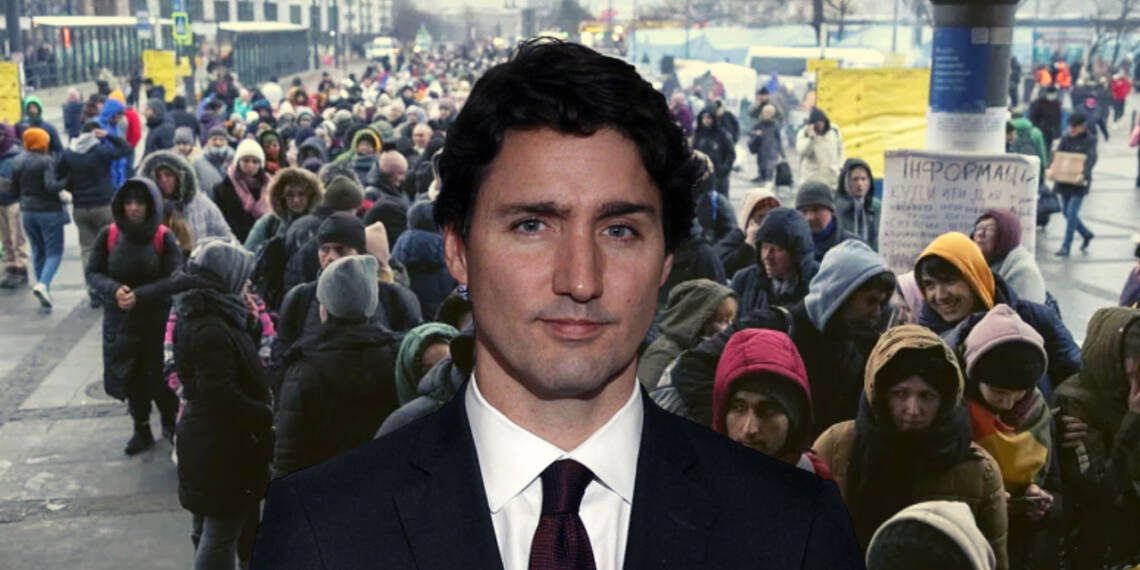CUAET Programe: The Canadian economy is in shambles as a result of Justin Trudeau’s terrible policies. Trudeau has periodically restated his priority of “growing the economy,” but his policies have resulted in slower development than he had hoped. The average Canadian’s life is today defined by historically high unemployment rates, massive government debt, inflation, and rising interest rates.
The country is currently coping with a lot of difficulties, including housing, food, and health. Such precariousness is the condition that migrants from Ukraine are preferring to return to their war torn nation rather than staying in Canada.
Ottawa needs to do more to help Ukrainian refugees navigate the complexities of paperwork and logistics to come to Canada, the former head of Doctors Without Borders says, lest it reprise past blunders.
Read more: Trudeau has made a mockery of Canadian citizenship, which is just a click away
“We know the failures in Afghanistan of not living up to our promises. And we cannot repeat history,” said Joanne Liu, a Montreal emergency physician who returned recently from three weeks in Ukraine, where she was struck by the warm reception to her Canadian passport.

Many in the country remember early Canadian promises to stand by Ukraine, making Canada “a place of promise, a place of hope,” Dr. Liu said. “We have to live up to our promise,” she added, pointing to bureaucratic obstacles Ukrainians must navigate before coming to Canada.
“We absolutely need to lift the red tape. For people who are seeking to come here, it’s not good enough to just say, ‘Well, we have extended the hours of our consulates.’ ”
You see, for those fleeing the war in Ukraine, Canada launched a new temporary residence pathway, the Canada-Ukraine Authorization for Emergency Travel (CUAET) program on March 17, 2022.
Read more: Justin Trudeau’s Missteps Leave Canadians Without a Rainy Day Fund
Offered in conjunction with a special family reunification program, CUAET is open to an unlimited number of Ukrainians regardless of their existing ties to Canada. While seemingly an open and benevolent gesture, Ukrainians are welcomed inside the Canadian nation not as humanitarian subjects but primarily as workers to potentially contribute to the Canadian economy.

Those more attentive to the protracted nature of the current “refugee crisis”, point to the differential treatment of others seeking asylum in Canada. In contrast to the unlimited number of Ukrainian nationals potentially streamlined through CUAET, the country restricted the numbers of Syrian and Afghan refugees eligible for asylum and, even then, has only admitted 8,500 Afghan refugees (of a possible 40,000) and 25,000 Syrians.
But there resides a nefarious agenda behind Trudeau’s holiness. Unlike the family reunion programme, which offers a road to permanent residency, CUAET will accept any number of Ukrainians, though only temporarily, and will provide residency for a maximum of three years.
To put it another way, people who arrive via the CUAET will not be claiming to be refugees, so they will not be subject to the standard (albeit flawed) procedure for determining whether they are refugees. They also won’t be refugees who receive government assistance and have access to benefits normally reserved for citizens. The CUAET is a temporary residence track, not a stream for refugees. The Canadian government has made this clear.
)
National and international temporary migration programs that only allow provisional entry, inevitably reproduce precarity, dependency, and conditions ripe for exploitation. In Canada, since the 1960s, the temporary employment of foreign nationals has proliferated across a range of employment sectors.
Facilitated by the Temporary Foreign Worker Program, migrant workers often arrive to congested living arrangements, dangerous work-environments, low wages, and little legal protection or opportunity to remain.
These workers are branded as good enough to work, but not good enough to reside permanently in the country or to access government assistance. Migrant advocates have fought against these conditions, demanding an end to temporary migration schemes that primarily benefit employers and states. Ostensibly benign, CUAET chips away at these efforts, and consigns those fleeing violence in Ukraine to uncertainty in Canada.
Temporary status also means that Ukrainians will be ineligible for settlement programs, language classes, employment assistance, and training programs, which offered with the view to social and economic integration, are only accessible to permanent residents.
Interpretations of the CUAET as a more viable route to safety within Canada have remained singularly focused on the unlimited number of entries the program may facilitate. However, when read against the Canadian government’s unwillingness to waive visa requirements for Ukrainian nationals, a more insidious agenda is revealed. If entry visas to Canada were waived, Ukrainians could board a flight, and upon arrival, claim asylum, initiating a process, enabling them—if successful—to remain in Canada permanently.

Yet, despite the horrors in Ukraine, at a House of Commons’ Standing Committee on Citizenship and Immigration meeting on March 1, 2022, Liberal members unanimously voted against a motion to implement visa free travel from Ukraine to Canada.
In doing so, the Canadian government actively blocks Ukrainian nationals from claiming asylum in Canada—a stark contravention of Canada’s stated commitment to refugee protection.
Canada is taking advantage of the Ukraine turmoil to boost its economy.
“Applicants are urged to apply for a 3-year open work permit at the same time as their [temporary visa] application,” the CUAET expressly stated. This is an appropriate use of temporary open work permits for Canada, which has had a severe lack of labour.
Justin Trudeau widely praised CUAET to be a transparent and helpful tactic. Yet, Ukrainians appear to be welcomed in Canada, mostly as labourers and secondarily as humanitarian subjects.
Furthermore, by supporting the economic interests of Canadian immigration and further normalising temporary migrant schemes, the programme runs the risk of eroding the nation’s already precarious refugee protection system. Doubtless, the Ukrainian migrants are dismayed and want to return to their home country, despite the fact that there is a tremendous threat to their lives in Ukraine. Therefore, the tragic tale of Ukrainian migrants in Canada is another proof of the poor leadership of the incompetent leader of Canada, Justin Trudeau.
https://www.youtube.com/watch?v=ieoZ82Z32rY








